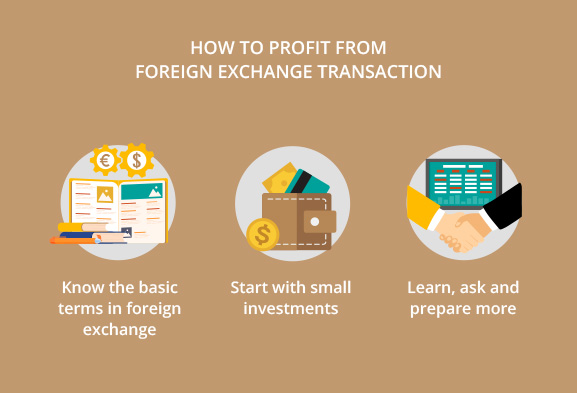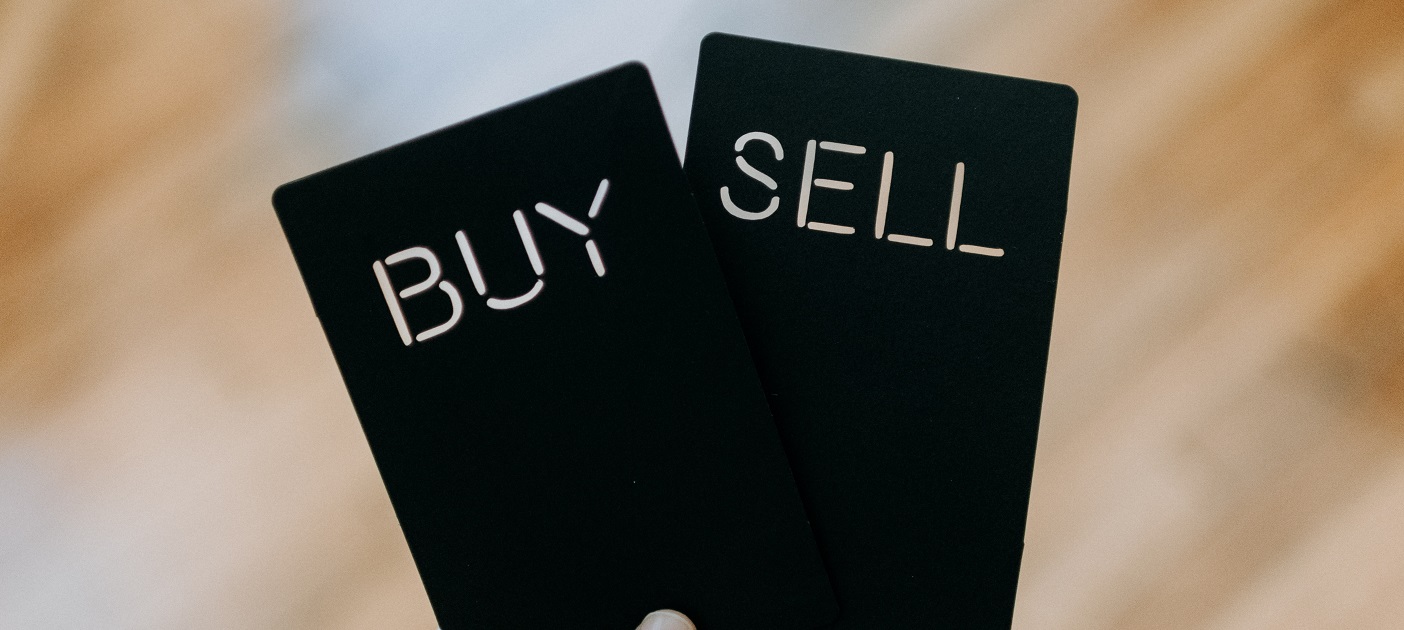After equipping yourself with the know-hows of Foreign Exchange, the natural next step is to explore how it can work for you.
How to trade foreign exchange ?

1. Know the basic terms in foreign exchange
Before starting to do a foreign exchange trade, it is suggested to know the basic terminology in foreign exchange such as base currency, bid price and asking price and also spread, etc.
2. Start with small investments
No matter what kind of investment, the biggest risk in the market is to invest a large amount of money at one time, exposing yourself to a greater risk envi- ronment. Therefore we suggest you start with small amounts, increasing trad- ing amounts gradually and only after confirming that the strategy you're using is correct.
3. Learn more, ask more, and prepare more
For most investors, foreign exchange transaction may be a relatively simple tool among many investments. But it is still necessary to understand the basics, its risk management, and terminology. You still need to do a lot of preparation, or find a professional investment team, such as DBS's team of Treasury Specialists, who will be of great help to your own investment planning and profit-making.
Upon understanding the above, are you excited about "foreign exchange transaction"? Before you get started, we recommend you learn about global currency exchange rates. Get exchange rate information from DBS. As the saying goes, keep your friends close and your enemies closer. A more thor- ough understanding in exchange rate will make it relatively easy to conduct foreign exchange transactions!
Key factors affecting foreign exchange rates
When conducting foreign exchange transactions, in addition to knowing global currency exchange rates, you will also need to know what will affect the ex- change rates to better understand the foreign exchange markets:
1. Inflation
A currency's biggest threat is inflation, which can greatly affect the exchange rate. When the inflation rate is relatively low, the price of various goods and services in the country rises slowly, thereby increasing the value of the curren- cy; By contrast, countries with higher inflation, tend to devalue their currencies and have higher interest rates.
2. Interest rate
Changes in interest rates will affect the value of currencies. From the previous point, we can see that foreign currency exchange rates, inflation, and interest rates are closely related. When interest rates rise in a country, it means that the currency will also rise, making people in other countries more willing to invest, so of course the exchange rate will rise as well.
3. Speculative trading
Of course, in the foreign exchange market, in addition to the participation of banks and non-bank financial institutions in the market, the operations of many professional investors or market speculators will also affect the currency exchange rate. As demand increases and the currency appreciates, the ex- change rate will also rise.
In fact, in addition to the above points, there are many factors that will affect the exchange rate changes of various countries, such as the global and region- al economies, trade, political stability, and national government debt. For ex- ample, the US-China relations , the yield of US Treasury, etc., which all have different degrees of direct or indirect effects on foreign exchange transactions and exchange rates with various currencies. Therefore, financial planning and risk assessment should be done before transactions, and transactions should be conducted reasonably and prudently.
Exchange Foreign Currency Nowon DBS iBanking
Download DBS digibank HK appto enjoy the convenience of 24x7 real time FX Trading Service
Risk Disclosure and Important Notice
Foreign exchange involves risks. Customers should note that foreign exchange may incur loss due to the fluctuation of exchange rate.
RMB currently may not be freely convertible and is subject to exchange controls and restrictions. There is no guarantee that RMB will not depreciate. If you convert Hong Kong Dollar or any other currency into RMB so as to invest in a RMB product and subsequently convert the RMB sale proceeds back into Hong Kong Dollar or any other currency, you may suffer a loss if RMB depreciates against Hong Kong Dollar or other currency.





